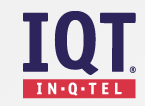In-Q-Tel (IQT) is a not-for-profit venture capital group that helps the NSA and other agencies hunt for startup and young companies that develop core technology for the U.S. intelligence community.
These young companies are often outside the reach of the intelligence community — about 70 percent of them have never worked with the government before. IQT often co-invests with venture capital groups, giving the CIA, NSA and other intelligence agencies access to the most new and innovative technologies on the market.
IQT is highly influential with the startup community and serves as an arm for intelligence operations. That’s evident in how it markets itself to potential employees:
The bottom line is that In-Q-Tel accelerates the Intelligence Community’s access to cutting-edge technology. We have had significant impact in supporting the IC mission, but we know that the only way to maintain our success is to continually attract top-notch talent from a wide variety of industries and professions. We are constantly reaching out to individuals who can add their creativity to the task before us – improving our nation’s security.
What The NSA Is Looking For
Job listings for IQT show the sophistication of the technology that the intelligence community is seeking:
- Top-secret clearance is needed for the people applying to work at IQT as a systems engineer. This is the job that does the technical work of transferring the startups and other porfolio companies to the intelligence community. These technologies include but are not limited to geospatial analytic tools, video analytic products, large-scale data systems, multilingual translation tools, security and mobility products.
- IQT lists “social network analysis,” as an area of focus for an intern in software engineering out of its Menlo Park office. In the job post, knowledge of OpenStack is listed as a plus. OpenStack has gained importance with the NSA for integrating the infrastructures of its various different agencies.
- It looks like the intelligence community needs better messaging and identity systems. A job listing for a member of the technical staff states they need someone “to define technology requirements and recommend solutions for identity and authentication for a secure email and messaging platform.”
- A job posting for a strategic advisor shows the extent that IQT seeks out tech companies with disruptive technologies. The job essentially requires the person to seek out companies that are doing some of the most extraordinary work in Silicon Valley. The posting cites advanced analytics, data visualization, collaboration, mobility and next generation infrastructure as areas of focus.
- For mobile, IQT is looking for someone with technical mastery who can recommend “potential solutions from the venture-backed startup landscape.” It appears that IQT, and by proxy the intelligence community, faces a technology gap as illustrated in the job description that says they are building a team for the entire mobile ecosystem, encompassing devices, operating systems, applications, networks, enterprise infrastructure and more. Basically, IQT is looking for mobile startups that encompass the entire technology stack.
- Over the past week, we have learned the extent of the NSA’s data-intelligence operations. It’s such a focus that IQT has a posting for a software engineer for “big data and advanced analytics.” That means proficiency in time-series databases, NoSQL, integration expertise using APIs and programming languages such as Ruby on Rails, Java and even MATLAB.
- The job listing for a systems administrator points to the sophistication of IQT’s own IT infrastructure and its internal development process for startups. The person holding the job has responsibility for the IQT lab, which conducts comprehensive comparisons on different products.
It appears that IQT has played a pivotal role for the intelligence community as it scales out its data mining and surveillance. But that scale out is just the beginning. The NSA is spending billions on top-secret data centers in Maryland and Utah so it can store and analyze billions of data points daily. It’s well-known that the NSA is building these data centers. But until this week, we really did not have a context for what looks like upwards of at least $5 billion in spending just for the construction and the racks inside. Now we can look at these giant data factories from an entirely different viewpoint.
The reality: there are billions more being spent on surveillance. And hundreds of tech companies will stand to benefit. Truly, the NSA’s best allies are the tech companies of Silicon Valley and the venture companies that back them.
